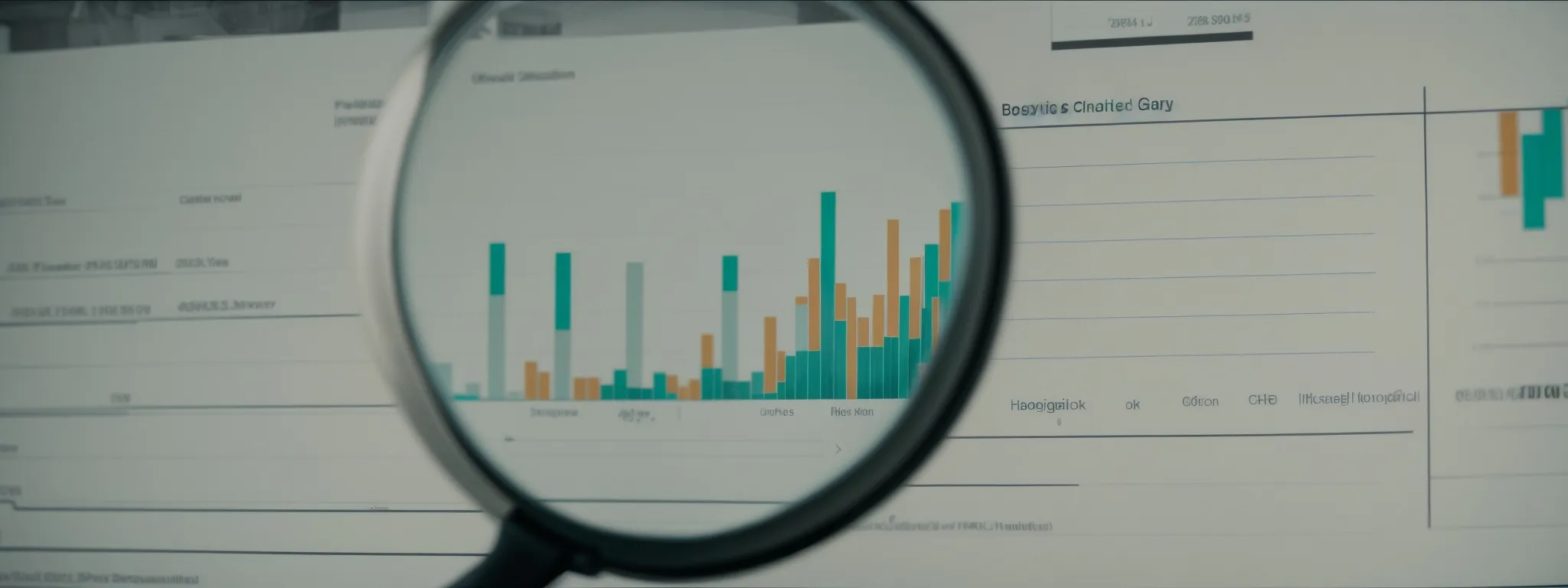Fake SEO Case Studies on Facebook: Unmasking the Fiction
Exposing the Truth: Fake SEO Case Studies on Facebook In an era where digital marketing reigns, it’s no surprise that SEO case studies have become a cornerstone […]
Exposing the Truth: Fake SEO Case Studies on Facebook
In an era where digital marketing reigns, it’s no surprise that SEO case studies have become a cornerstone for agencies like LinkGraph to demonstrate the impact of their services.
However, beneath the veneer of impressive metrics, a disturbing trend of fake SEO case studies has infiltrated platforms such as Facebook, muddying the waters for business owners and marketers alike.
These fraudulent narratives, crafted with the intent to mislead and captivate audiences, risk undermining the credibility of legitimate SEO achievements.
The challenge lies in discerning the genuine success stories from the manufactured ones—a critical skill set for those navigating the complex realm of digital marketing.
Keep reading as we dissect real versus counterfeit SEO case studies and reveal the truth behind these misleading tales.
Key Takeaways
- Fake SEO Case Studies Undermine Trust and Set Unrealistic Expectations in the Digital Marketing Industry
- Meticulous Analysis and Verification Are Required to Distinguish Legitimate SEO Success From Fabricated Narratives
- The Proliferation of Counterfeit SEO Tales on Platforms Like Facebook Threatens the Integrity of the SEO Profession
- Genuine SEO Case Studies Feature Detailed Analytics, Proof of Strategy, and Transparent Reporting
- Establishing Credible Forums and Advocating for Data-Driven SEO Knowledge Can Mitigate the Spread of Misinformation
Unveiling the Motives Behind Fake SEO Case Studies

In an era where digital presence signals credibility, the proliferation of misleading SEO case studies on platforms such as Facebook has become a significant issue.
Business owners, marketers, and SEO professionals often rely on successful case studies to guide their strategies, making the accuracy of these reports paramount.
Yet, a disturbing trend has surfaced, where unverified and embellished success stories are propagated, leading individuals and companies astray.
At the heart of these deceptive practices lies a lucrative motive: the selling of false hope in a competitive online marketplace.
This introduction sets the stage to explore not only the incentives that drive entities to manufacture fake success narratives but also the thriving marketplace that monetizes these counterfeit triumphs.
Identifying the Incentives for Misleading Claims
The allure of digital recognition often compels entities to craft fabricated SEO case studies, aiming to captivate an unsuspecting audience. The rationale behind these deceitful claims is intrinsically linked to the desire to quickly ascend the competitive hierarchy of search rankings, tempting business owners and SEO newcomers with the promise of rapid success.
False narratives in SEO case studies manipulate trust, converting reader interest into monetary gain for the purveyors of these tales. By presenting fabricated data as factual, these fraudsters not only tarnish the integrity of genuine SEO accomplishments but also erode the foundation upon which ethical digital marketing stands.
The Profitable Business of Selling False Success Stories
In the murky corners of the digital marketplace, the proliferation of fake SEO case studies stands as a lucid reflection of a business model steeped in deception. These counterfeit narratives are not merely woven from thin air; they are calculated maneuvers designed to coax advertisers into investing in services that promise, but often do not deliver, accelerated SEO performance.
The dissemination of these fictive success stories generates a chain of profitable outcomes for the creators: unsuspecting clients become ensnared by the allure of ostensibly proven results, funneling funds into strategies built upon a foundation of falsehoods. The feedback loop is a continual stream of revenue for the masterminds who have adeptly turned manipulation into a lucrative enterprise:
- Clients lured by deceptive case studies,
- Financial investment based on misrepresented successes,
- Continued revenue for the fabricators of said studies.
Deceptive Metrics in Fabricated SEO Successes

In the landscape of Search Engine Optimization, precise and reliable data serve as the cornerstone for strategic decision-making.
However, the emergence of fabricated SEO case studies on social platforms like Facebook is causing a seismic shift in the industry’s terrain of trust.
These suspect narratives, adorned with manipulated metrics, offer a veneer of success that is enticing yet hollow.
Such cases often lead astute observers to question the veracity of the inflated results, recognizing inconsistencies that signal data corruption.
This introduction aims to prepare the reader to discern the telltale indications of doctored data and to understand how these hyperbolized achievements can raise concerns, prompting a closer examination of the information presented.
Recognizing the Signs of Manipulated Data
Discerning the authenticity of data within SEO case studies requires a careful analysis of the information presented. An immediate red flag arises when results appear too good to be true, like a dramatic surge in search traffic overnight or an implausible increase in page rankings without a clear, strategic explanation.
Furthermore, the absence of a comprehensive methodology to substantiate the astounding figures often indicates data manipulation. Scrutinizing the fine print for vague or ambiguous language surrounding the methods used can unveil attempts to conceal the lack of valid, analytical rigor:
| SEO Metric | Claimed Result | Indicators of Manipulation |
|---|---|---|
| Keyword Rankings | Top 3 positions within days | Lack of historical data, sudden rank jump |
| Backlinks | Thousands generated in one week | Low-quality or irrelevant links, rapid acquisition |
| Organic Traffic | Doubled traffic within a month | Incompatible with industry norms, no source attribution |
Why Overstated Results Raise Red Flags
Overstated results in SEO case studies immediately provoke skepticism among seasoned industry professionals. They understand that genuine and sustainable SEO progress demands time, careful planning, and adherence to search engine guidelines; any deviation from this norm suggests possible malfeasance.
When results claim a meteoric rise in rankings or traffic, it pits the case study against established industry knowledge and statistical probability. These red flags serve as a clarion call for scrutiny and further investigation:
- Overstated metrics compared against industry averages.
- Misalignment with the slow-and-steady nature of effective SEO practices.
- Inconsistences that provoke skepticism and warrant validation.
Spotting the Red Herrings in Facebook SEO Case Studies

In the current landscape of SEO, Facebook has emerged as an influential platform where a blend of authentic success stories and disingenuous case studies coexists.
Business professionals seeking to distinguish the wheat from the chaff must navigate through an assortment of misleading presentations that claim to reveal the secret sauce of high-performing SEO strategies.
This examination delves into the common traps set by those who peddle false SEO case studies, contrasting these ruses against the markers of legitimate, effective case studies that truly reflect the outcomes of well-executed SEO campaigns.
Common Traps Used by Purveyors of False Case Studies
The digital terrain teems with crafty operators who deploy certain tactics to ensnare the unsuspecting. One prevalent trap is the projection of immediate SEO victories, which are often seductively framed within the confines of a Facebook case study.
In their efforts to mimic authenticity, these fabricators employ storytelling that deftly mixes truths with exaggerations. This hybrid narrative, particularly when showcased in a popular social media group or page, muddies the waters between legitimate success stories and the carefully constructed ones aiming to entice the unwary marketer.
How Authentic Case Studies Differ From Fabrications
Authentic SEO case studies distinguish themselves through the meticulous presentation of data, methodologies, and long-term results. They entail detailed analytics that reveal incrementally achieved outcomes, aligned with realistic goals and adhering to SEO best practices.
Such case studies provide an unembellished narrative, usually accompanied by verifiable proof of strategies that have been implemented, such as comprehensive keyword research, thoughtful content strategy, and ethical link building. The transparent nature of these reports instills confidence, showcasing a commitment to integrity and respect for the audience:
- Detailed analytics supporting gradual improvements
- Proof of implemented strategies and adherence to best practices
- Transparency and verifiable data providing trustworthy insights

In the quest to illuminate the origins of counterfeit SEO achievements, scrutiny inevitably turns towards the propagators of these tales on networks like Facebook.
These purveyors, often masked behind a veneer of credibility, leverage the social network’s immense reach to disseminate false claims.
With a focus on Profiling the Typical Promoters of Deceptive Case Studies and The Role of Verification in Assessing Credibility, this inquiry aims to disclose the agents responsible for distributing such misleading content and underscore the importance of rigorous verification processes.
Thereby, enabling discerning professionals to navigate the social media platform with an informed perspective, distinguishing genuine insight from fraudulent assertions.
Profiling the Typical Promoters of Deceptive Case Studies
Those who distribute deceptive SEO case studies are often skilled in the art of persuasion, presenting themselves as seasoned experts within the field. They typically target Facebook social media platforms, understanding that the sheer volume of users increases the probability of their counterfeit stories gaining traction among business entities and individuals seeking a competitive edge in SEO.
The profiles of such promoters are frequently embellished with impressive but undemonstrated claims of success, and they might position themselves as authorities by leveraging testimonials that are unsubstantiated or selectively presented. These agents of misinformation exploit the desire for quick results, prevalent among page owners and marketers, to anchor themselves as purveyors of ostensibly proven SEO tactics.
The Role of Verification in Assessing Credibility
In the digital marketing domain, where reputation is the bedrock of trust, verification becomes the lifeline for establishing credibility. Discerning professionals examine the origins of SEO case studies shared on platforms like Facebook, employing rigorous validation techniques to sieve the truth from a sea of false narratives.
Authenticity checks involve a deeper investigation into the author’s history, the presence of observable evidence of success, and the replication of the claimed results. Such scrutiny ensures that claims withstand the rigors of verification, safeguarding consumers and business owners from being misled by spurious success stories.
Case Study Breakdown: Analyzing Real vs. Fake SEO Achievements

In the intricate dance of SEO, deciphering the genuine strides of success from the masquerade of falsehoods requires an astute eye and a methodical approach.
Professionals seeking to navigate the deluge of SEO case studies on Facebook must equip themselves with the analytical tools to separate robust methodologies from the flimsy facades of fake accomplishments.
In the forthcoming exploration, a step-by-step guide serves as the compass to steer the discerning reader through the often-blurred lines of fact and fiction, while an emphasis on key performance indicators of genuine SEO success sets the benchmark for verifiable achievement in this digital realm.
Step-by-Step Guide to Discriminate Fact From Fiction
In the quest to discern the credibility of SEO case studies, professionals initiate the evaluation process with a surgical precision: They commence by scrutinizing the provenance and the depth of provided data. A legitimate study should offer a clear trajectory of the tactics employed and the corresponding outcomes, allowing for the results to be attributed to specific actions taken.
- Analyze the sources of the case study to ensure its origin aligns with a reputable author or company.
- Scrutinize the data for transparency, seeking evidence for claims such as growth in organic search traffic or improvement in keyword rankings.
- Examine the timelines for SEO results, ensuring they reflect realistic and sustainable progress rather than improbable rapid successes.
- Identify the qualitative impact of the SEO strategies deployed, such as user engagement and content relevance.
- Confirm the reproducibility of the results by comparing them with best practices and known SEO benchmarks.
Further, the investigation inspects the consistency across various reports, looking for signs of a coherent strategy that extends beyond quick fixes or manipulative shortcuts: Genuine case studies emerge from a framework that prioritizes organic growth, ethical practices, and adaptation to search engine algorithm updates.
Key Performance Indicators of Genuine SEO Success
Discerning the markers of real SEO success revolves around a set of well-established Key Performance Indicators (KPIs). Among these, organic search traffic growth stands out, reflecting a website’s rising relevance and authority to search engines. Moreover, the durability and quality of backlinks acquired, along with improved keyword rankings for targeted phrases, serve as tangible evidence of a comprehensive and successful SEO campaign.
Enhanced user experience, as indicated by lowered bounce rates and increased average session durations, bears witness to the effectiveness of a site’s content strategy and its alignment with user intent. Such metrics are testaments to an SEO effort that prioritizes value delivery and user engagement:
| KPI | Real Success Indicator | Fabrication Red Flag |
|---|---|---|
| Organic Search Traffic | Steady increase over time | Unrealistic spikes without campaign alignment |
| Backlinks | High-quality from relevant sources | Overnight influx from dubious origins |
| Keyword Rankings | Gradual improvement for niche terms | Instant top ranks for highly competitive terms |
| User Engagement | Increased session duration and pages per session | Decreased engagement with no strategy change |
How Fake SEO Case Studies Erode Industry Trust

The integrity of the Search Engine Optimization industry is foundational for trust between professionals and clients.
However, the rise of fake SEO case studies, particularly on social platforms like Facebook, significantly undermines this sense of trust.
Pseudo-success stories, while appearing to offer shortcuts to top search rankings, ultimately erode the professional standards and authenticity that lie at the heart of SEO practices.
This revelation prepares the ground to delve into the considerable repercussions of such deceptive practices, highlighting the urgent need for fostering a transparent SEO community where distilling truth from fiction is paramount for safeguarding the industry’s future.
The Impact of Deception on Professional SEO Standards
The dissemination of fake SEO case studies on platforms like Facebook does not merely spread misinformation; it poses a corrosive threat to the professional standards by which ethical SEO practitioners abide. These deceptive practices create skewed benchmarks, leading business owners and marketers to harbor unrealistic expectations and inadvertently apply harmful strategies that can damage their digital footprints and credibility in the long run.
This distortion of factual performance data hampers the ability of genuine SEO experts to educate and set proper expectations with clients. The fallout is a growing skepticism that impedes the formation of trustful partnerships, critical for achieving sustainable and collaborative digital growth.
| Aspect | Impact of Fake Case Studies | Consequence for SEO Industry |
|---|---|---|
| Professional Standards | Erosion of ethical benchmarking | Damaged client relationships and trust |
| Expectations Setting | Unrealistic client goals | Unsustainable SEO strategies implementation |
| Industry Education | Spread of misinformation | Difficulty in advocating best practices |
Building a More Transparent SEO Community on Facebook
To establish a more transparent SEO community on Facebook, it is essential that professionals and enthusiasts come together to prioritize the sharing of accurate, verified SEO strategies and case studies. This collective effort can be facilitated through the creation of credible Facebook groups and pages dedicated to the dissemination of SEO knowledge, where authenticity is the hallmark, and misleading tactics are swiftly debunked by community members.
LinkGraph, as a provider of premier SEO services, takes an active role in nurturing this environment by contributing insights and data-driven results from their Search Atlas SEO tool. By engaging with the community through evidence-based discussions and transparent sharing of their SEO successes, LinkGraph sets the standard for credible information exchange, helping to cultivate an SEO ecosystem on Facebook that is both reliable and conducive to real digital growth.
Conclusion
Exposing the rampant spread of fake SEO case studies on Facebook is crucial to safeguard the integrity of the SEO industry.
These fabricated narratives jeopardize professional standards by setting unrealistic benchmarks and expectations, leading businesses to implement strategies that do more harm than good to their online presence.
It is imperative for the SEO community to foster an environment of transparency where genuine achievements are shared and dubious claims are challenged.
By endorsing rigorous verification and prioritizing the dissemination of accurate, evidence-backed information, we can protect businesses from the allure of false promises and maintain the trust that is essential for the digital market’s healthy growth.
The collective effort in combating misleading case studies will reinforce the commitment to ethical practices and lay the groundwork for sustainable SEO success.















































































